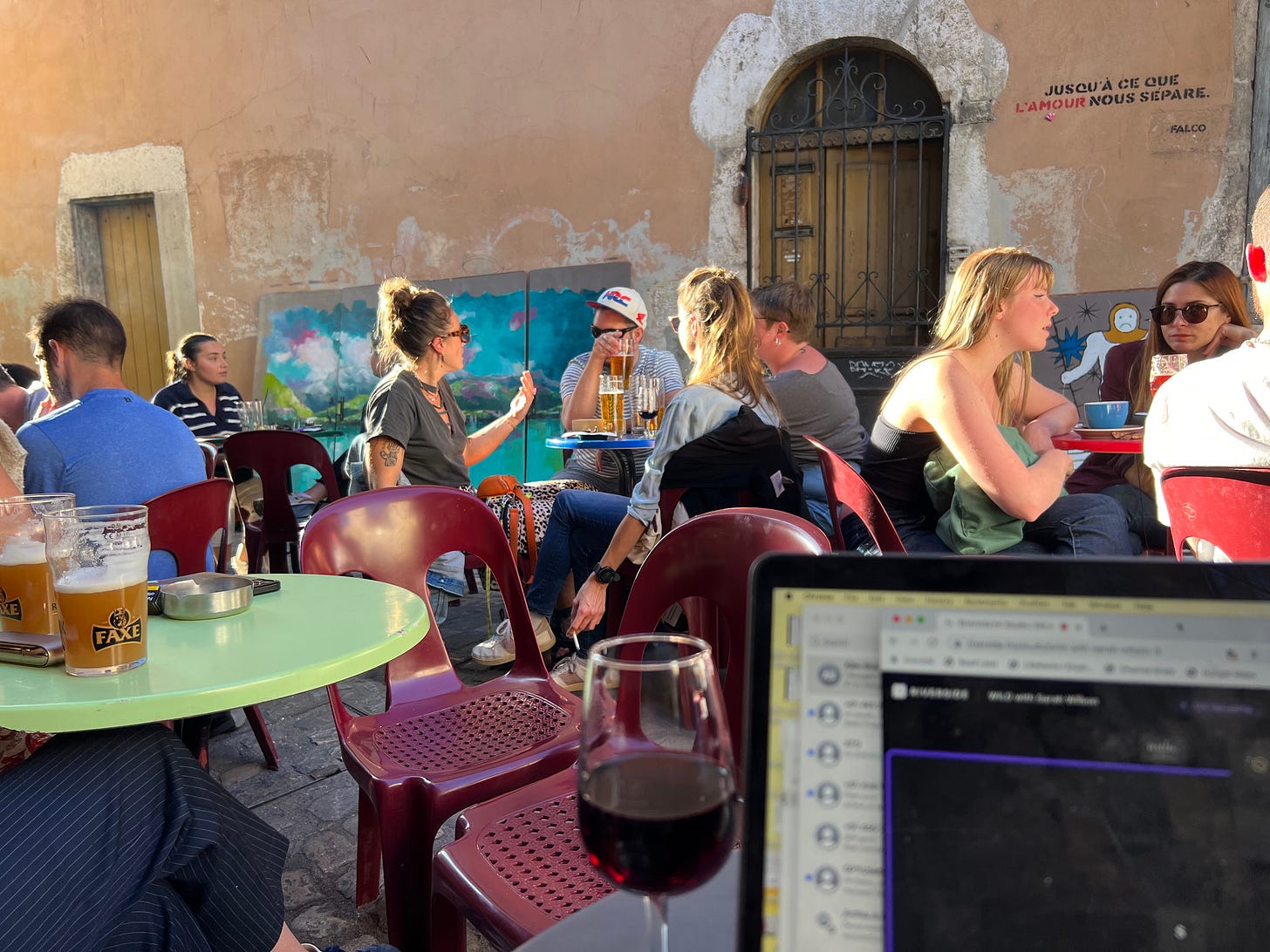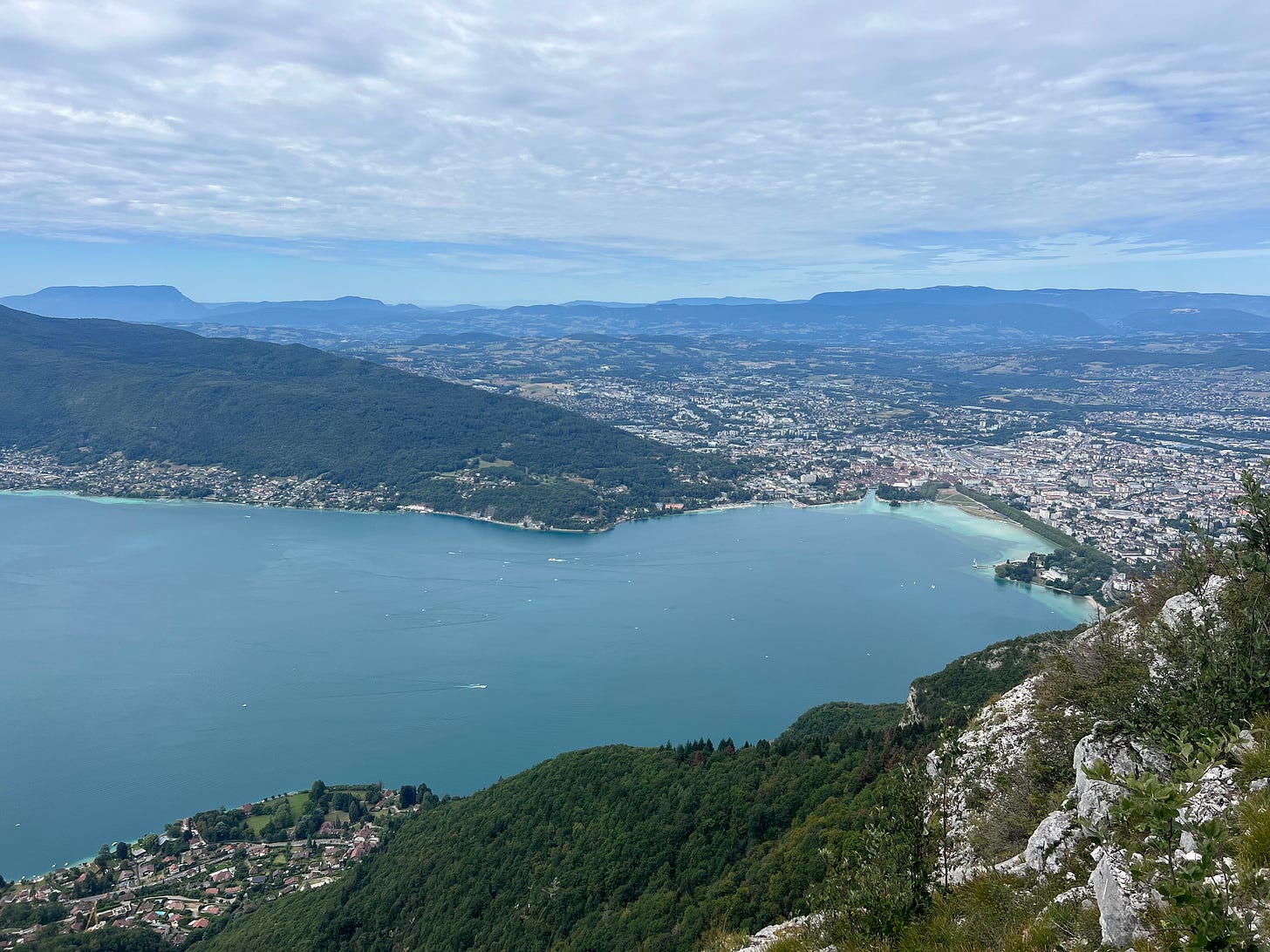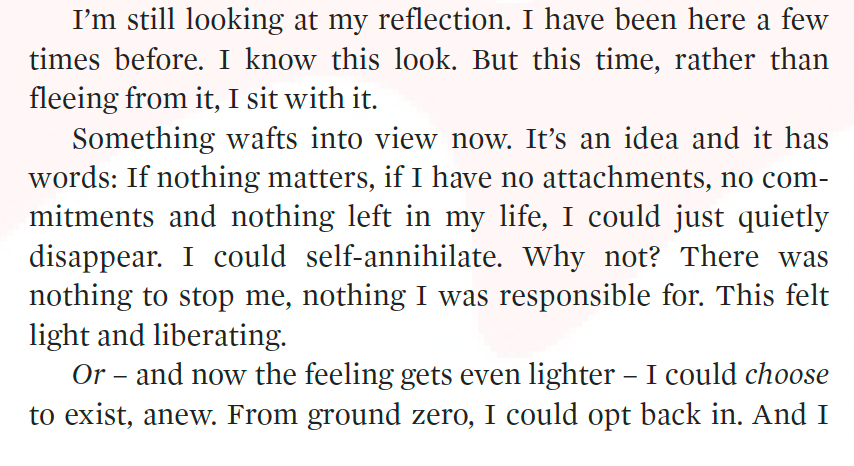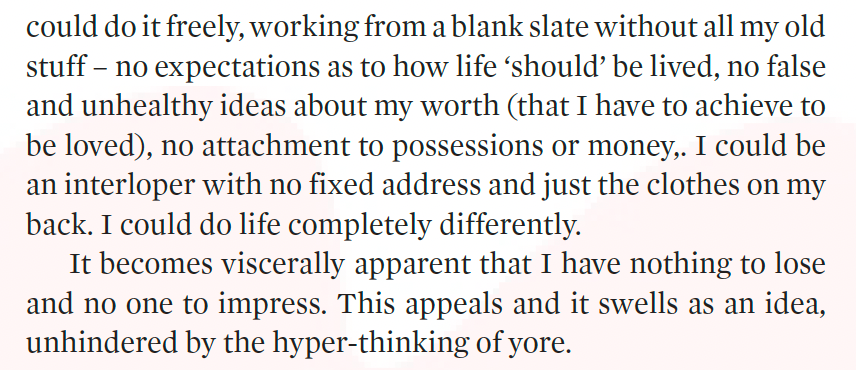I’ve just done a Wild interview with a wonderful man who has tried to kill himself at least 10 times (although on most readings it’s been more than 20 times). The first was when he was six years old.
Following my friend Tim’s death a few weeks back, I’ve been reflecting on suicide, mostly from being challenged on my thoughts around it by others who have reached out to me. I’ve been fielding a lot of correspondence from people, most of whom I don’t know, wanting me to explain the whys and wherefores of what happened. Many are confused, angry or feel betrayed by Tim; they explain to me that they’re struggling to reconcile their feelings with their beliefs about suicide (that it’s a selfish act, for instance). And many more don’t really know what they think or feel and I get the sense they reach out wanting me to tell them the position to take.
Which is not something I will ever do.
But I will hold a conversation with someone who can steer complex, very human thoughts in good directions. And I will share how I wrestle with loss, my feelings and the bigness of it all as best I can.

I’d heard philosophy professor and author Clancy Martin talk to Sean Illing on Vox’s The Gray Area podcast some time back and I’d been struck by how delicately he shared his ideas and how beautifully tentative, but conscious, his adherence to living was. It was like every word he shared was a gift, every day he lived a heartfelt and painful choice. So I reached out to ask if he’d join me to talk through, well, suicide. In big part so I had something to send to people who reach out to me. He replied:
I’d be delighted to do this! Thank you for thinking of me. Please sign me up!
I really do recommend listening to the episode, if only to experience Clancy.
OK, preamble over, I’ll now add that the conversation raised a number of things for me.
The first is a sweeping generalisation…
Those I know who’ve suffered suicidal ideation, or who have tried to take their life, are truly, in my experience, the most delicate, delightfully vibrant humans. They pulse with life, and yet are so fragile. They are the embodiment of their affliction. Clancy was all of this. We teared up together. We decided we’d be friends.
The basis for this correlation is probably explained by the below…
The second hottish take…
…is that I am steadfastly of the opinion that we should not cushion discussion about death. Not in 2023.
I’m aware that there is a Prevailing Position in the World that anything that can “trigger” an uncomfortable feeling should be watered down or not raised at all. And I’ve been cynical of such a position for some time. I’ve kept my opinions somewhat to myself FORs. But less and less so as I have become and more and more of the belief that it’s precisely the issues that trigger various uncomfortable emotions that need to be addressed today (climate collapse, death, etc) and it's precisely the emotions that are triggered that need to be felt through and toughened up against. Because life is only going to get more, not less, uncomfortable and challenging. Also, collective death is a very real thing (see below). As I presented to the National Press Club in Canberra almost two years ago, “we have cocooned ourselves and our kids against everything…except real life”.
I was aware of this as I conducted the interview and consciously decided not to be dictated to by any kind of quasi- (and unhelpful) fragility I might be met with (although I do alert people at the top to the subject matter and invite them to pause and come back later or to skip this episode if it is too much1).
The third is really a continuation of what Clancy and I talk about.
It’s this:
To face death is to learn how to live. To truly live.
Mark Twain, Leonardo Da Vinci, the Existentialists (German and French), Mitch Albom, Simone Weil…many wise minds have said it to be so. But the wisdom does not exist as an edict, something that we have to will into being. It’s more that one necessarily flows from the other. It’s something of a truism.
When we contemplate the end or disappearance of a thing, we must contemplate the thing itself. When we sit with death, we necessarily wonder “What is life?” and “What does it mean to live?”
A bunch more reflections and conclusions lead from here:
When we reflect on and discuss death and then ask “what is life?”, we then also pause to view and absorb life, the beautiful stream of it that could slip though our fingers at any time, and we see its preciousness, its wildness and its finiteness, all of which dials up the urgency to truly live. This was certainly the case for me at several delicate junctures in my life. I make no secret of my struggles with suicide ideation and close brushes with disappearing. But there was a moment when I’d touched death so intimately that it woke me up resoundly to life, truly and fully. If you’ve read First, We Make the Beast Beautiful (you can buy it here) it was the moment when I’m in my pyjamas and can’t see myself in the mirror and, well, I decide to live. And I get up and eat peanut butter from the jar.
Here are some screen grabs from the bit in the book:
And so I did. Live life. With just the clothes on my back, metaphorically speaking.
This process can also see us become overwhelmed with the absurdity of life. Namely, with the idea that there is no meaning to our existence and yet we mostly continue to live on. Quelle paradox! I realised, while talking to Clancy, that we can become suicidal from a sense we are not worthy of life or from a sense that life is meaningless (so why bother). If we can’t find resolution to the latter, death becomes a logical conclusion. But there is a resolution to the paradox! Which Albert Camus found when he worked out we can make life meaningful (and we do so by serving others). I, too, found my resolution to the paradox and some time before I read Camus. As I explain above, I realised I could ditch the expectations and then play with it all, find life fascinating (in its inherent lack of meaning) and also potent (because it continues to be beautiful in spite of this lack of meaning). Play is the operative word here. (And, wonderfully, it’s a concept I developed for myself with my dear dear Tim… “Sare, keep running the experiment, keep the camera rolling…”) And I use it in the interview with Clancy, which he says he likes.
As we face climate collapse and other existential threats particular to the Anthropocene, all of the above becomes so salient. The finiteness and preciousness of life is dialled up, ditto the absurdity. We are not just asking, What is life? We are also asking, What does my life mean in the face of universal death? What does it mean to be human on a planet that will keep spinning without us (“it will flick us off like fleas, as per a George Carlin)? How do we live meaningfully in the the shadow of our looming end? To a certain extent, I feel our collective understanding of life is already dead. What I mean by this, is that the “old normal” is over. So much of what we took for granted for centuries will no longer exist. So these questions are very real.
These are madly, big questions. I suspect most of you here are asking them already. And feel the absurdity of it all.
As I explain to Clancy, my very committed belief that I had to die emerged from my awareness of the absurdity of my existence, rather than from thinking I was not worthy (as per my thesis above). As I say, there is a resolution to this suicidal prompt. That is to wholly realise we create our own meaning…and then doing just that. And this is what saved me. Not everyone resolves the paradox. And many, many people take their lives because they don’t feel worthy of life.
I’m drawing long bows here…but I feel that if we can…
collectively have a better discussion around death…
we can then learn to live…
which equips us for resolving the absurdity paradox…
which will put us in good stead for facing the very real existential challenges ahead.
I read a line somewhere, that I saved, by Roy Scranton who served in the US Army during the Iraq war:
If we want to learn to live in the Anthropocene, we must first learn how to die
Long bows. Deep convictions. Big questions. Indeed, bigger questions to ask around why a big important soul might decide to end this particular life at this time in the cycle of life.
It’s all absurd. And we find our meaning in it.

OK, I now need to drive my campervan up into the mountain behind Annecy, to find a spot in the forest to sleep for the night. The process terrifies me each night (it’s my fourth on this trip)…not from fear of strange people (men) breaking in at night, or being sprung by police (I’m parking somewhat illegally), but from fear of…getting it all wrong, choosing to be a lone woman in a forest eating sardines and broccoli while writing words “to” strangers. If that makes any sense. Probably time to hit the “play” with it button.
Big love,
Sarah xx
PS To everyone who reached out to me, I hope this post, the podcast with Clancy and my reflections about Tim here help you find your peace and also to resolve the absurdity paradox in your own special way.
PPS Do let me know your thoughts about the podcast with Clancy. Here it is again.
Only to add that I think people should truly try to face their fears as an ongoing approach to life…






You know, I was not expecting to enjoy reading this. I'm going to be blunt.
I signed up to 'this is precious' when I signed up to Substack, not really knowing the kind of content.
I get an email in my inbox just simply titled 'this is precious' and then something about suicide.
I think it's spam, to be honest, to be formatted so differently from my usual emails - it's lower caps, but not a personal email e.g. from a friend. An unusual vibe anyway.
Safe to say my first response was what the fuck does this person know. Sorry but it's true. I was so unbelievably defensive. I'm in the middle of watching a TV program, as well. But, something very tiny in me says to give it a shot. So I read, properly, and give it my full attention.
Well, I'll be damned, it touched me. It took me back to memories when I myself struggled with suicide ideation. Very strangely, today, I struggled with it for the first time in absolutely ages, prompted by some ruminations mixed with low self-esteem and too much isolation.
Some really difficult parts about the time I wanted to kill myself (the main time - the heaviest time) was that I was completely obsessed with the fact that 'we're all going to die'. Our collective mortality. It felt so imminent. But I was in a cushioned, safe place, a cushy, elite university (Cambridge). No one else seemed to feel this imminent doom.
In my later years I contextualised these feelings as coming from childhood experiences where I felt unsafe. But... this didn't account for my burgeoning ecological consciousness at the time. Also - I had this feeling that I was overheating constantly.
After reading this whole thing - and I'd like to listen to the podcast/ links - I feel more so that my feelings back then were probably an intense response to childhood trauma and also extreme sensitivity, almost a foreshadowing, of what was logically to come. I'm not sure. The latter sounds almost mystical but it FEELS true.
But most of all reading this made me feel less alone. And more like... ffs why didn't I feel comfortable sharing my experiences sooner!
So thank you, from the bottom of my heart. Because, as well, this makes me wonder if I should give things a second chance more often. Take that damned armour off that comes from being a Londoner (maybe).
Angelica
I have tried suicide many times growing up knowing that I needed help.At ten the doctor called me a precocious little prig after I took mums iron tabs and was very sick.Mum was often depressed needing ECT sometimes No discussion about mums sadness after her mum died when she was 16 then brother killed in war a few years later.
Talking about death is essential for understanding others pain At 16 the psychiatrist said I was normal but she wanted to see mum.That never happened but the psyche helped me see a point to my life and I am now an ex nurse and psychotherapist today I hope understanding suicide is not selfish but out of love for those who you are hurting often.
I tried a few times after traumatic events one being an abortion feeling so alone with that decision. .Liz